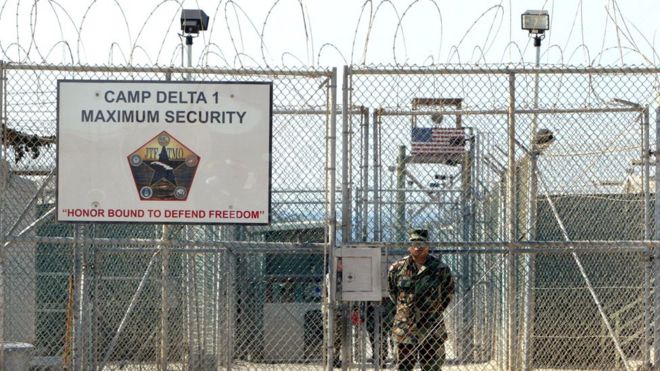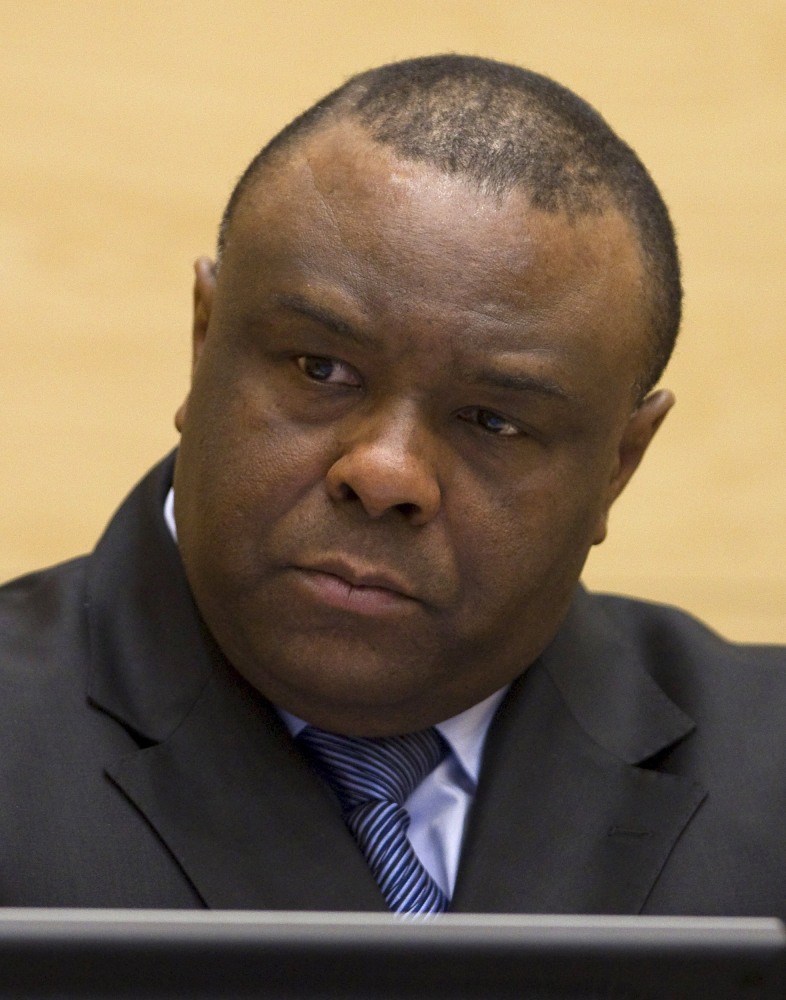Department of Defense Plans to Release Additional Prisoners
By Samuel Miller
Impunity Watch Reporter, North America and Oceania
WASHINGTON, D.C., United States of America — U.S. military officials from the Department of Defense have informed Congress that they plan to transfer about a dozen prisoners from the detention facility at the naval base in Guantánamo Bay, Cuba. The first of the transfers are expected in the next few days and the others will take place in coming weeks, said one of the officials, who spoke on condition of anonymity.

Among them will be Tariq Ba Odah, a Yemeni man who has been on a long-term hunger strike.
At least two countries have agreed to accept the detainees, according to the officials who spoke on condition of anonymity because they weren’t authorized to discuss pending transfers. A Pentagon spokesperson, Commander Gary Ross, issued this statement: “The Administration is committed to reducing the detainee population and to closing the detention facility responsibly.”
There are now 91 prisoners at the U.S. naval base in Guantánamo Bay, Cuba. Most have been held without charge or trial for more than a decade, drawing international condemnation. According to Reuters, the Pentagon has notified Congress of its latest planned transfers from among the 37 detainees already cleared to be sent to their homelands or other countries.
U.S. officials have said they expect to move out all members of that group by this summer.
The best known of the detainees expected to be resettled in the coming weeks is Tariq Ba Odah, a Yemeni prisoner who has been undergoing a hunger strike in protest of his detention. That process includes guards strapping him down, putting a rubber tube down his nose and pumping a liquid dietary supplement into his stomach.
One of the issues in Odah’s case is the congressional ban on repatriations to Yemen, a country mired in an ongoing military conflict. The country is also considered a breeding ground for terrorists associated with organizations such as Al Qaeda in the Arabian Peninsula (AQAP).
President Obama, who last month presented Congress with a blueprint for closing the prison, continues his attempt to make good on his long-time pledge before he leaves office in January. The plan for shuttering the facility calls for bringing the several dozen remaining prisoners to maximum-security prison in the United States. But U.S. law bars such transfers to the mainland, and President Obama has not ruled out doing so by use of executive action.
The Obama administration’s main effort to close the prison has been transferring low-risk prisoners to countries that can meet security conditions, with the rest to be taken to a different prison on domestic soil. But the fate of the plan is uncertain because of a statute banning the military from taking detainees from Guantánamo to the United States.
The Guantánamo facility has been criticized both in the United States and abroad as a symbol of human rights abuses for indefinitely holding prisoners without trial.
For more information, please see:
BBC News – US to transfer dozen Guantanamo inmates to at least two countries – 31 March 2016
Voice of America – US Preparing to Transfer More Prisoners From Guantanamo Bay – 31 March 2016
NY Times – Pentagon Plans More Prisoner Transfers From Guantánamo – 30 March 2016
Reuters – Pentagon to send about a dozen Guantanamo inmates to other countries soon – 30 March 2016
Washington Post – Hunger striker at Guantanamo Bay slated for transfer – 30 March 2016
Maduro Vows to Strike Down Amnesty Law
By Kaitlyn Degnan
Impunity Watch Reporter, South America
CARACAS, Venezuela — The Opposition-controlled National Assembly of Venezuela has passed an amnesty law which would free a number of imprisoned opposition activists and end the legal cases being brought against others. President Nicolas Maduro, who heads the government-supported Socialist Party, has promised to strike down the law.

Venezuela’s constitution does not give the president veto powers. However, following the passing of a law by the National Assembly, Maduro has 10 days to sign the law into effect, or it is deferred to the Supreme Court. The Court then has 15 days to make a ruling on the law.
The Court is notorious for siding with the Executive, and has shot down most of what the National Assembly has tried to do since taking office in January, including allowing Maduro to rule by decree on issues related to the economy.
In order to declare the amnesty constitutional, the court must find that the beneficiaries of the law have committed crimes against humanity, or otherwise violated human rights.
Over 70 political prisoners would be freed by the bill, including Leopoldo Lopez. Lopez is considered by many to be Venezuela’s highest profile political prisoner. He was jailed in 2014 for allegedly spurring protests which resulted in the deaths of 40 people. He was convicted of “public incitement to violence and criminal association” last year, in a trial which has been called a “complete travesty of justice” by Human Rights Watch.
Maduro and his supporters deny that Lopez and others like him are political prisoners, instead calling them, “imprisoned politicians.” Speaking on television hours before the bill was passed, Maduro said: “Laws to protect terrorists and criminals will not get past me, no matter what they do.”
Opposition politicians have stated that no one who would be released by the law has been accused of homicide.
For more information, please see:
Associated Press – Venezuela Opposition Passes Bill to Free Imprisoned Activist – 29 March 2016
Financial Times – Venezuelan congress passes amnesty law – 30 March 2016
Media with Conscience – Venezuela congresses passes bill to free jailed activists – 30 March 2016
Reuters – Venezuela parliament approves amnesty law, Maduro vows to veto – 30 March 2016
UPI – Venezuela’s Maduro vows to veto amnesty bill passed by National Assembly – 30 March 2016
ICTJ | World Report March 2016 – Transitional Justice News and Analysis
|
Third ICC Conviction is Full of Firsts
By Tyler Campbell
Impunity Watch Reporter, Africa
BRAZZAVILLE, Congo – On March 21st the International Criminal Court (ICC) declared Jean-Pierre Bemba, the ex-vice president of the Democratic Republic of Congo, guilty of all five charges brought against him. Bemba was being charged for his leadership role with the MLC militia, which committed atrocities in the Central African Republic’s civil war. This is only the third conviction ever reached by the ICC but it comes with multiple landmarks for the court.

Bemba was convicted of two counts of crimes against humanity, murder and rape, and three counts of war crimes, murder, rape, and pillaging. This is the first time that the ICC has landed a conviction for rape as a war crime. This conviction by the ICC shows the continued change of how rape is viewed in the context of war. Instead of being written off as an inevitable byproduct of war it is now seen as weapon of war that must receive consequences when used.
The ex-vice president is also the highest-ranking official to ever be convicted by the court. Conviction of a high-ranking official, who was not present or near the ground fighting, shows acceptance of a different line of legal reasoning from the court. The all women three-judge panel stated Bemba was guilty by failing to properly exercise the control he had over the troops. This line of reasoning could now be taken to hold military commanders and high up government officials for, not only what they do, but also when they have failed to responsibly exercise the control their office gives them. The judges summed up this line of culpability when they said they were finding him guilty for what he had “failed to prevent.”
Now that the court has accepted that superiors can be held accountable for the actions of those below them we could see more convictions come from the ICC. Although, we should be cautious of expecting any large changes too quickly. The next step in Bemba’s case will be sentencing after the court has heard from the two parties and the legal representatives of the victims.
For More Information Please See:
BBC – Jean-Pierre Bemba: DR Congo ex-warlord guilty of war crimes – 21 March 2016
NBC News – Jean-Pierre Bemba Convicted at ICC of War Crimes, Crimes Against Humanity – 21 March 2016